Intel Core i5-11600K
The Intel Core i5-11600K is Intel's mid-range answer to the fantastic AMD Ryzen 5 5600X, with the same amount of cores and threads, and even a more affordable price – especially when you take the current shortage of AMD processors into consideration.
And given the rocky launch of Intel's 11th-generation processors, the Intel Core i5-11600K is probably the highlight of the entire generation, and easily the best processor Intel has put out this year.
When that's coupled with the fact that this processor is just $269 (£248, AU$419), compared to the Ryzen 5 5600X's $349 (£349, AU$549) price tag, the Intel Core i5-11600K might just be the best processor for gamers that don't really need to shell out for a super high-end processor.
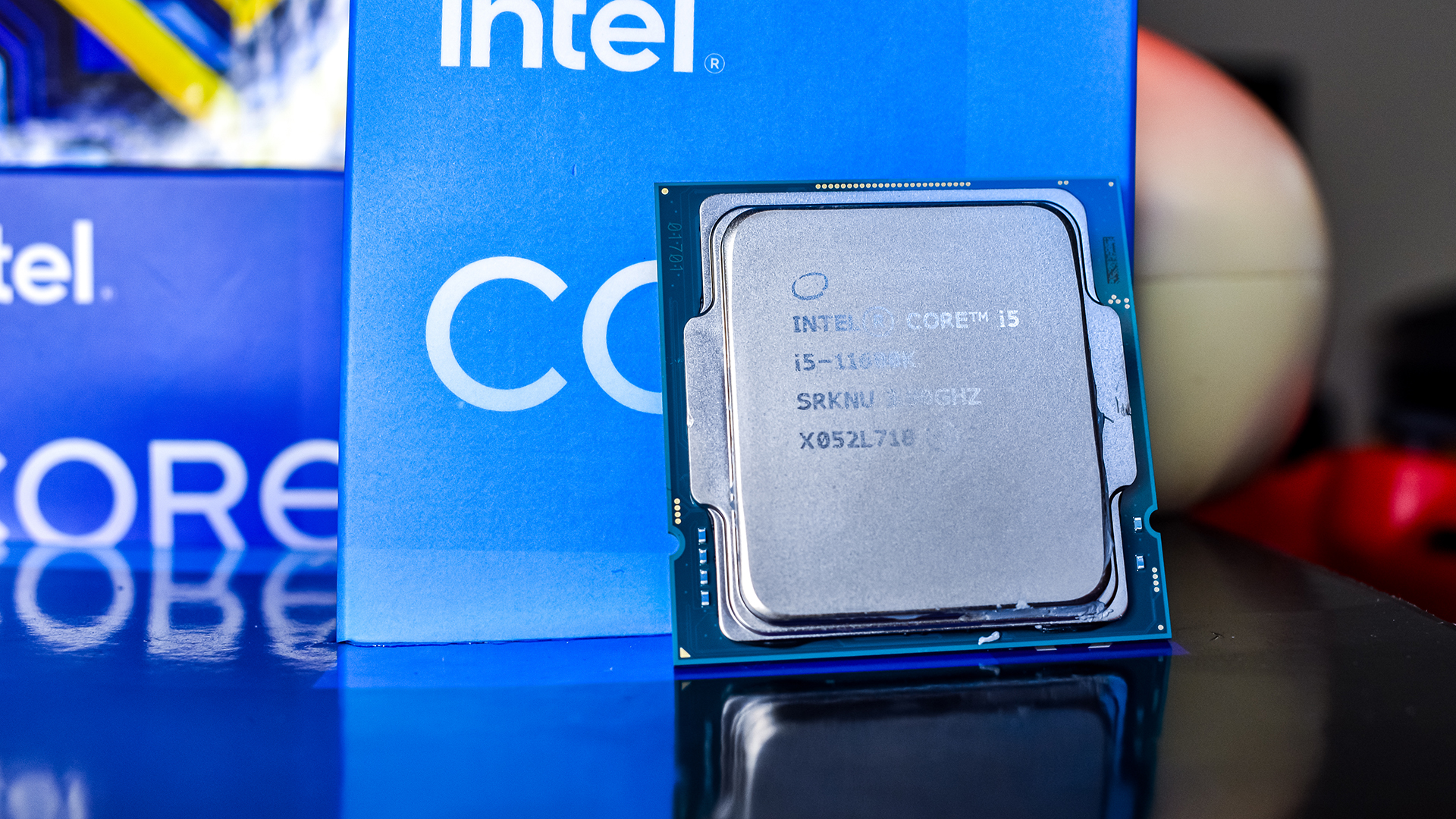
Price and availability
The Intel Core i5-11600K launched March 30, 2021, with a suggested retail price of $262. Right now, it's listed on most retailers for $269 (£248, AU$419), which makes it one of the best value processors, especially for gamers.
You just have to look at the AMD Ryzen 5 5600X to see why. AMD's six-core mid range champion is currently listed for like $349 (£349, AU$549), which is a significant price increase. Now, AMD's processor is a bit faster, but it's not so fast that it's worth the extra $80.
So while Rocket Lake is mostly a wasted generation of processors, the Intel Core i5-11600K is genuinely a good buy for most gamers, though you are going to have to invest in a solid CPU cooler to deal with the higher power consumption and temperatures over the previous generation.
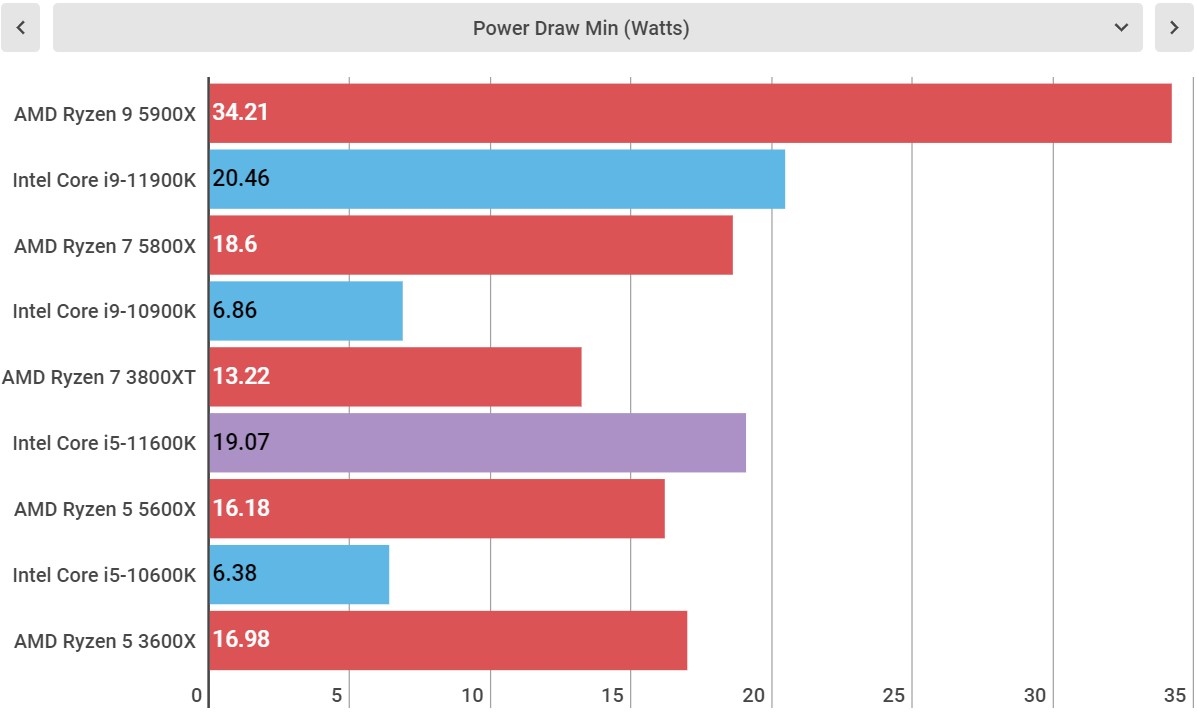
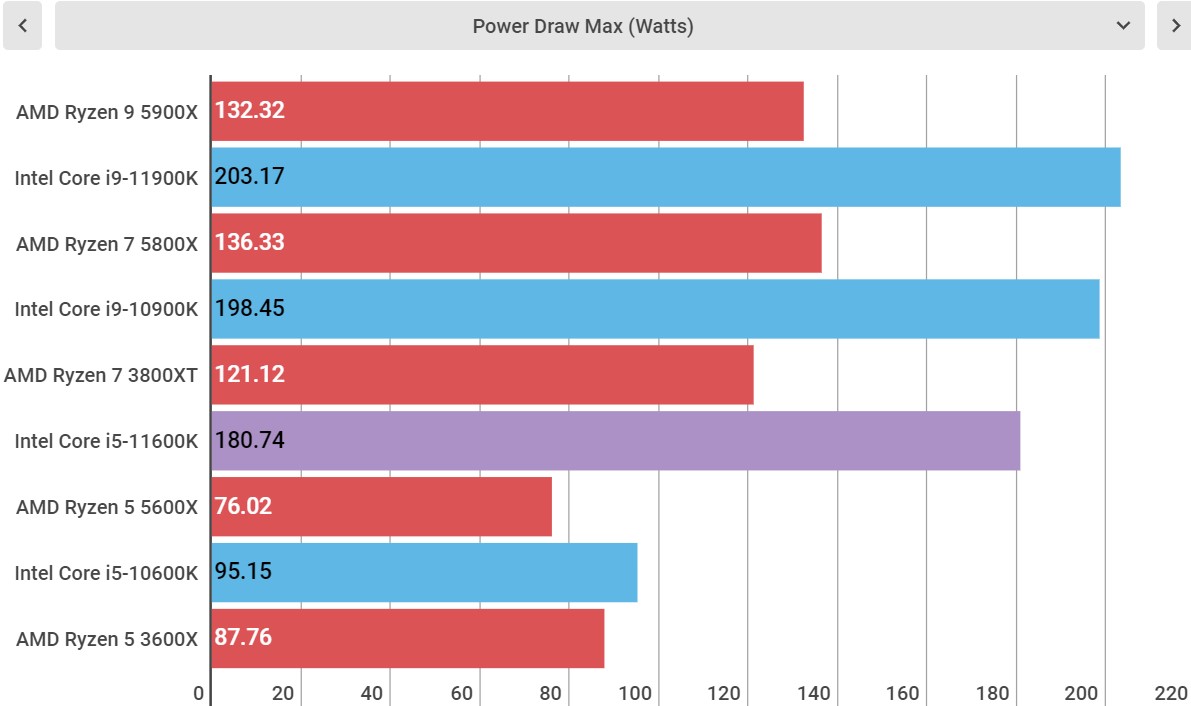

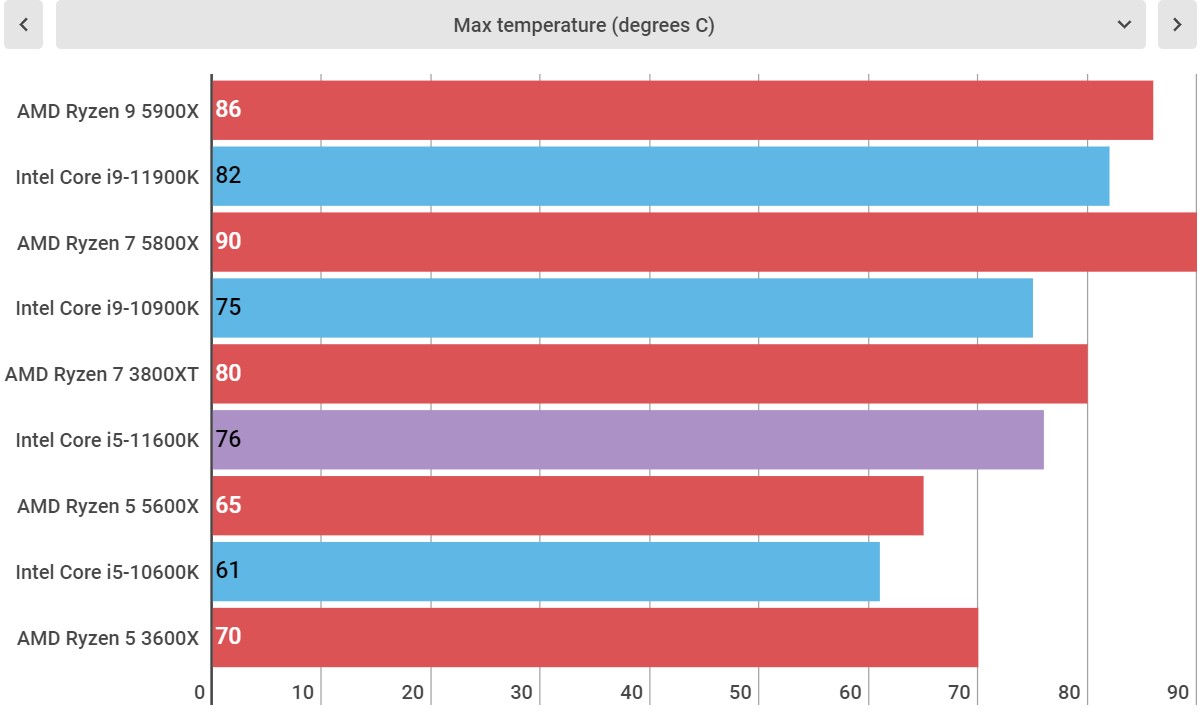
Chipset and features
The Intel Core i5-11600K is based on Intel's 11th-generation Rocket Lake-S architecture, yet again based on a 14nm manufacturing process. However, unlike the past few generations, which were all based on 2015's Skylake architecture, Intel instead took the 7nm Ice Lake architecture and ported it back to 14nm, to a new core architecture it's calling Cypress Cove.
The main reason Intel did this was to be able to push clock speeds higher than it is currently able to on 7nm, which is important for PC gaming. Now, for the Core i9-11900K, this was a big downgrade, as it forced Intel to move back down to an eight-core, 16-thread design, but for the Core i5, it leads to huge jumps in performance generation-over-generation, which we'll go into later.
However, this added performance doesn't come for free. The Intel Core i5-11600K consumes way more power and gets way hotter than the Intel Core i5-10600K, and it's not even close.
Without putting the Intel Core i5-10600K through something like Prime95, it reaches a peak power consumption of just 95.15W. The 11600K, on the other hand, goes all the way up to 180.74W – nearly twice as much power. And as a result, temperatures are much higher. Even using the exact same cooler in the exact same tests, the Intel Core i5-11600K peaks at 76°C, a huge jump over the 61°C of the 10600K.
That means that for the first time, we're recommending that everyone that picks this processor up goes for a pretty robust CPU cooler. It's going to get hot.
In the past, this tier of processor was basically made for folks that just wanted to make a mid-range PC, but with the amount of cooling and power that it requires, you're going to have to invest in both a beefy cooler and a power supply that can keep up with how much juice this thing sucks from the wall – especially if you're pairing it with a powerful graphics card like the Nvidia GeForce RTX 3080.
Probably the coolest thing about this generation of Intel processors, however, is the inclusion of PCIe 4.0 compatibility. Intel has finally caught up to AMD on desktop in that regard, and you're going to be able to use the fastest SSDs on the market – which is probably why we're starting to see more speedy SSDs starting to hit the market all of a sudden.
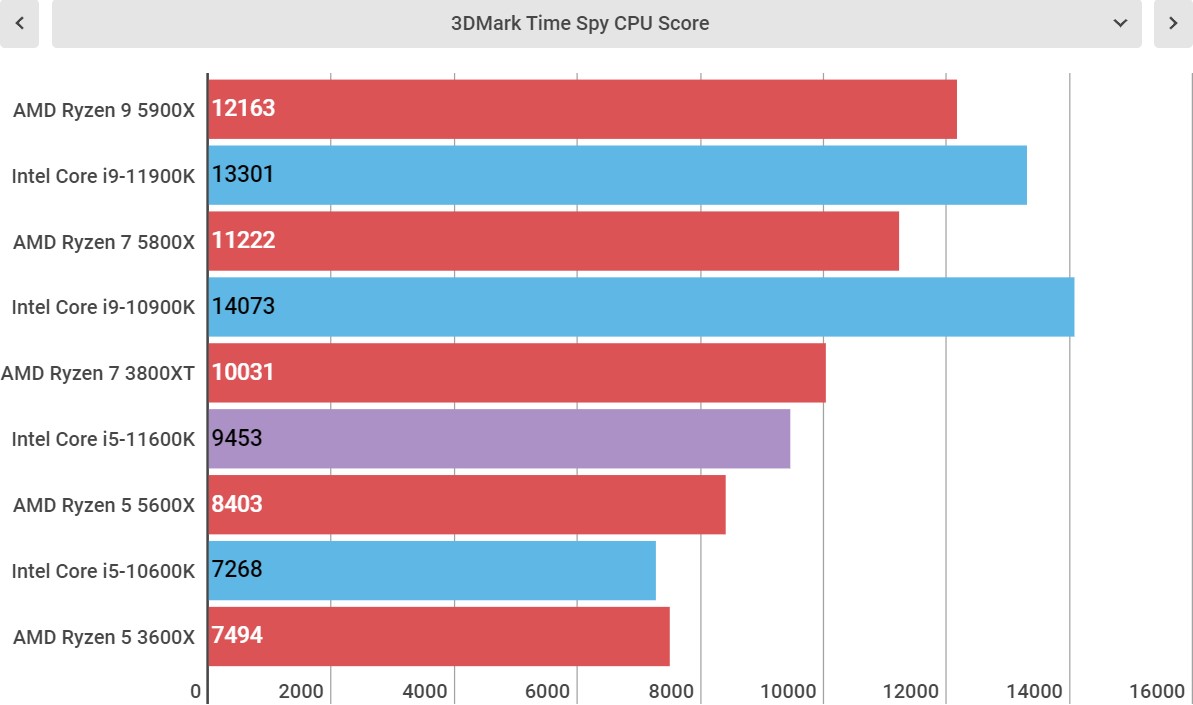
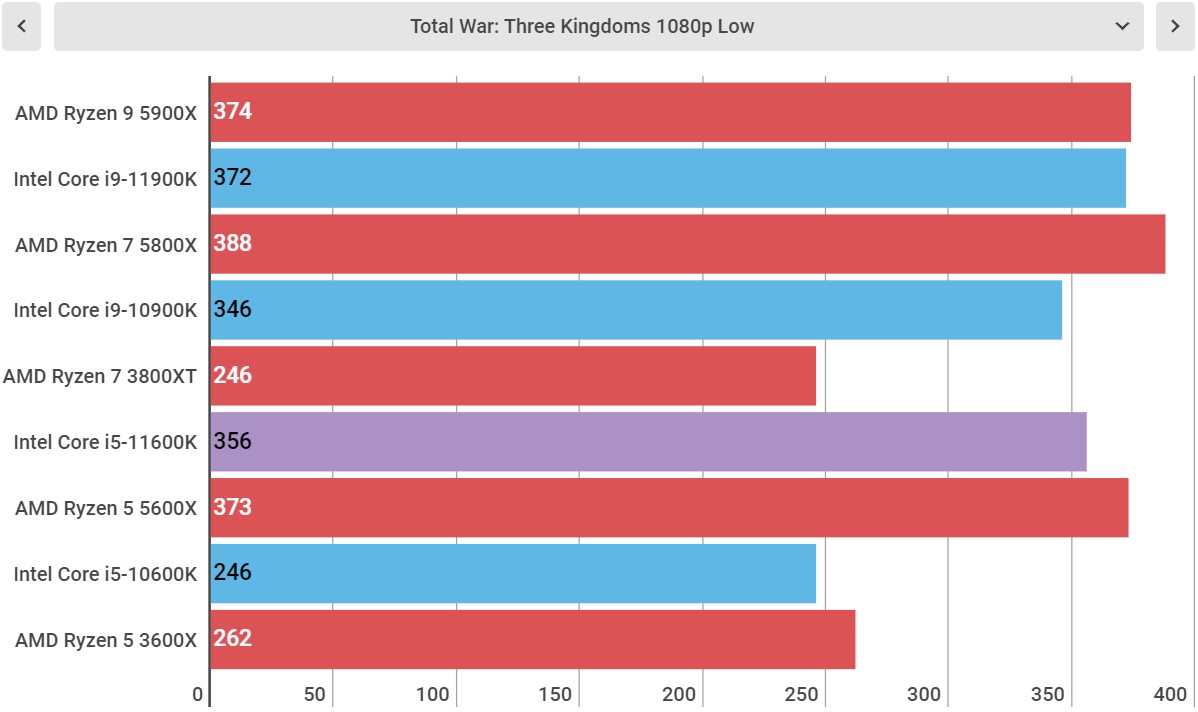
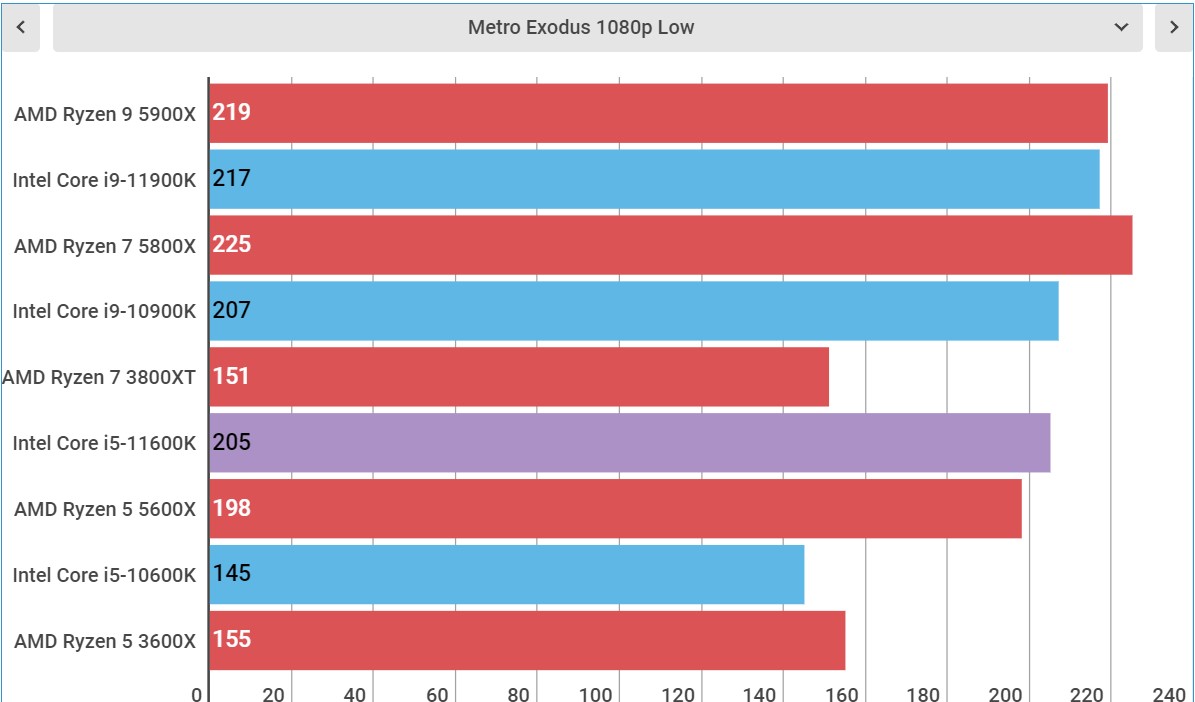
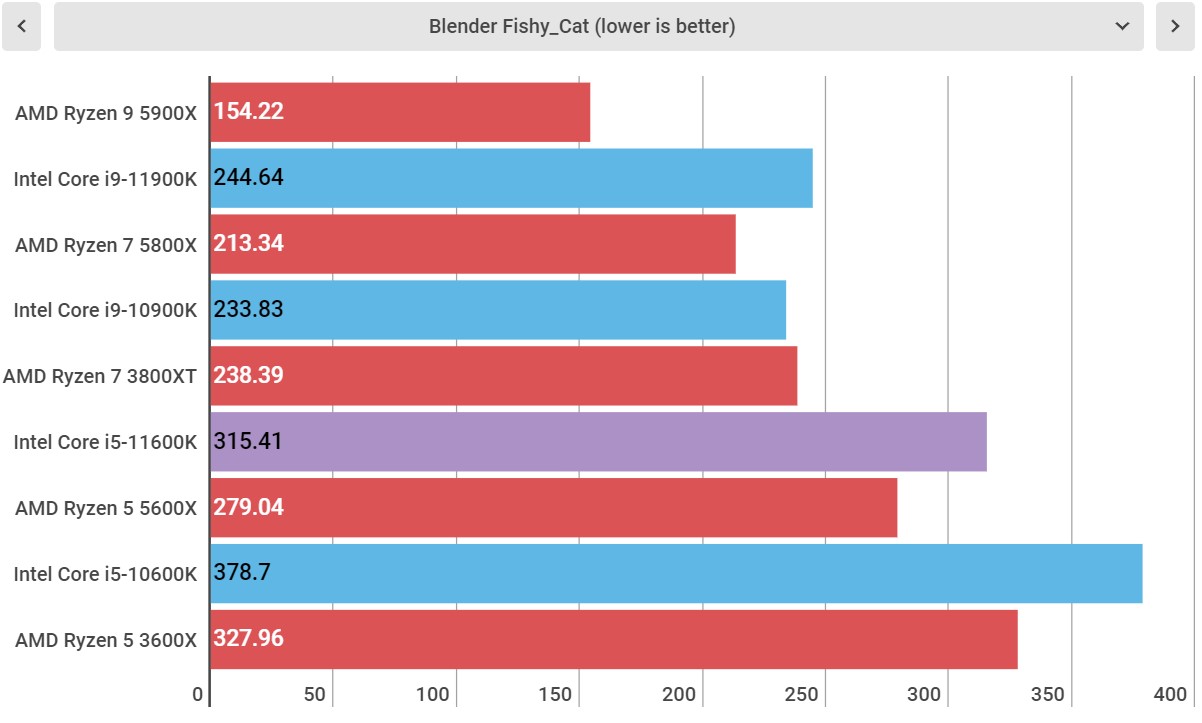
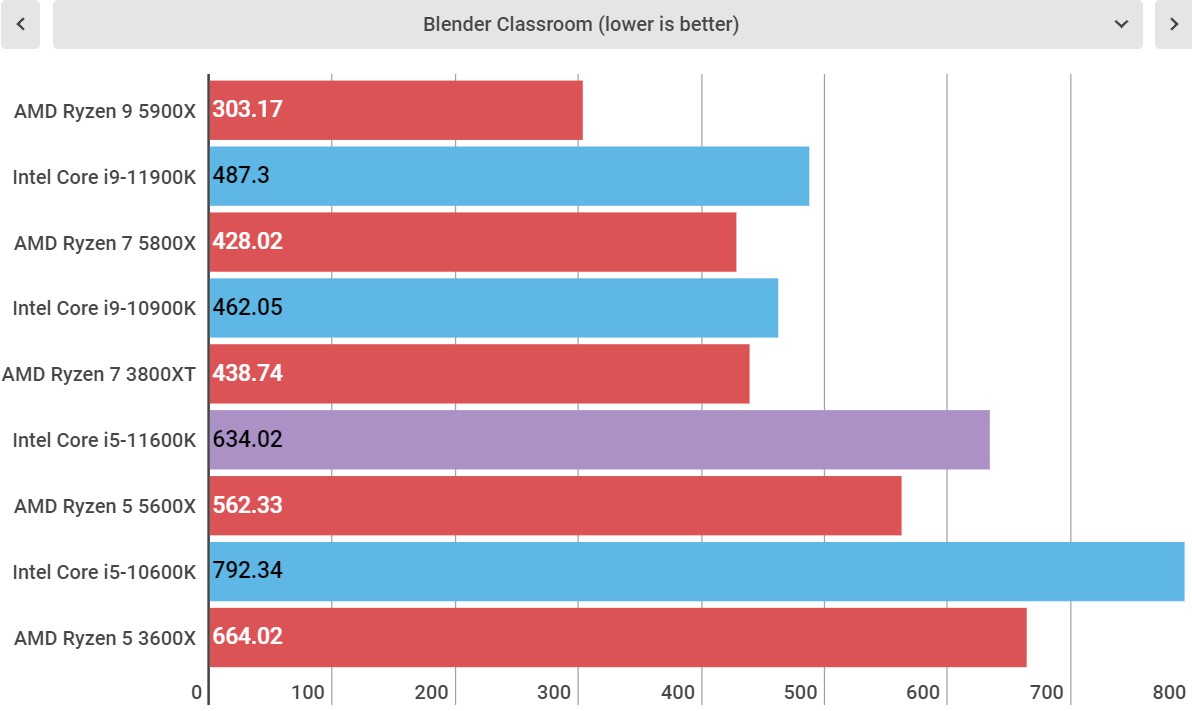
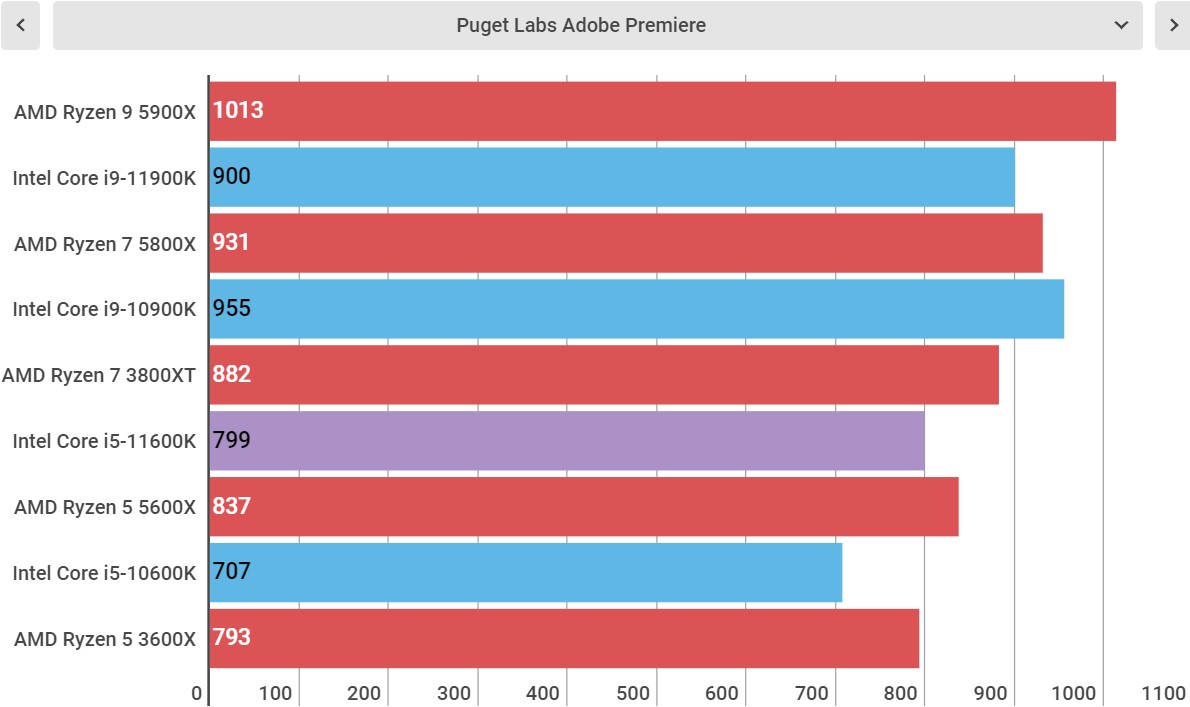
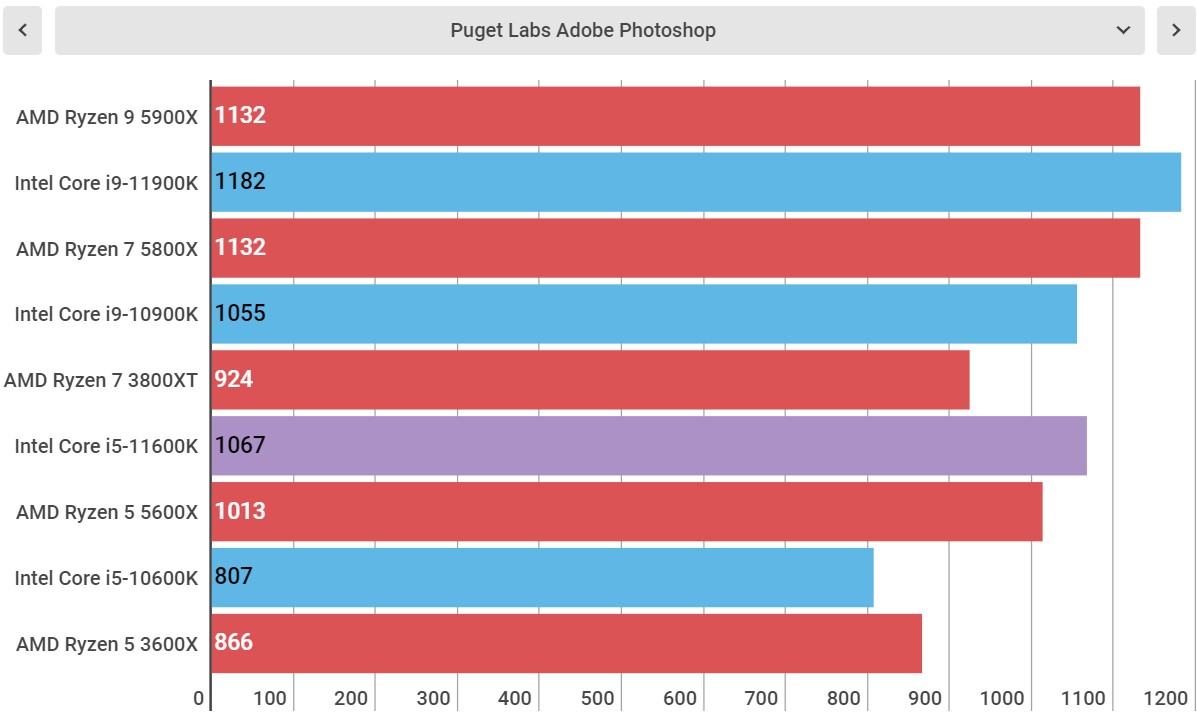
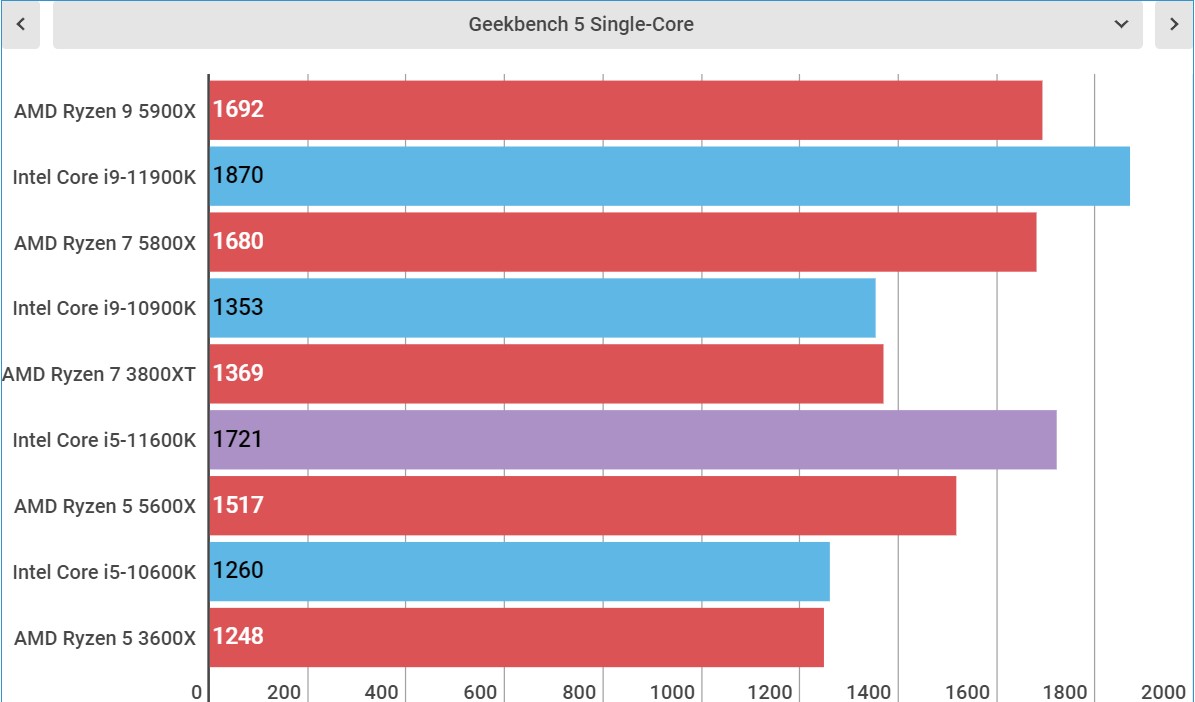
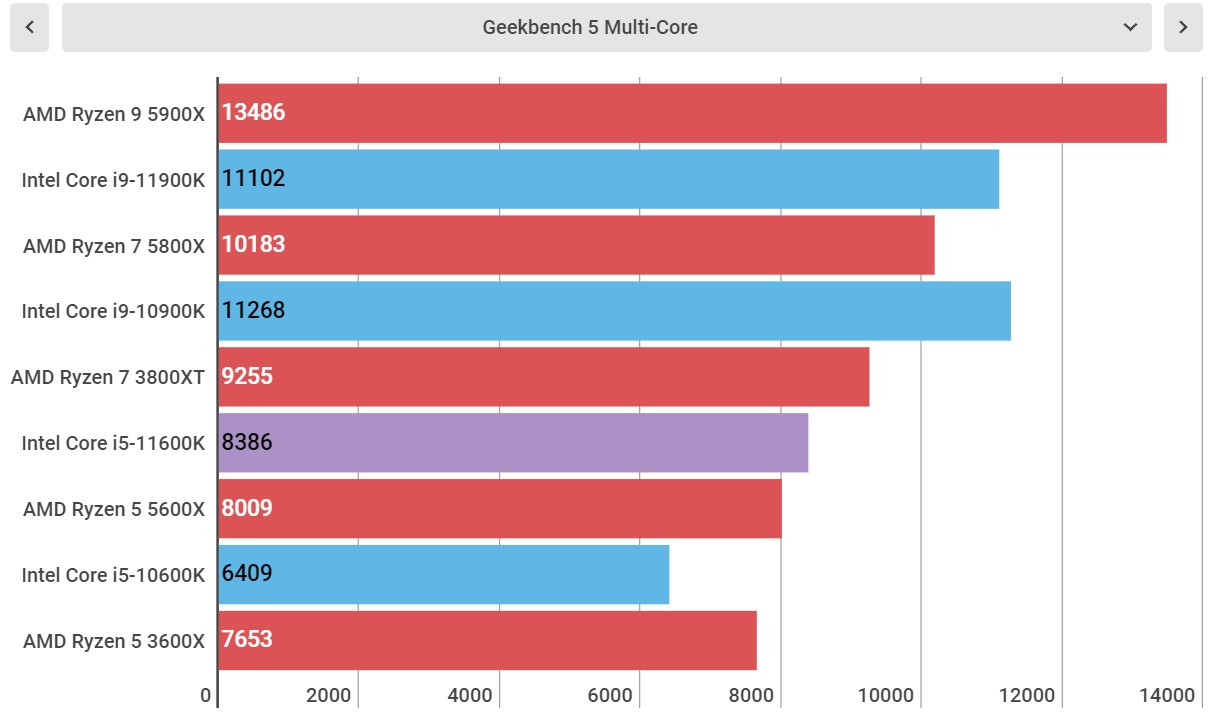
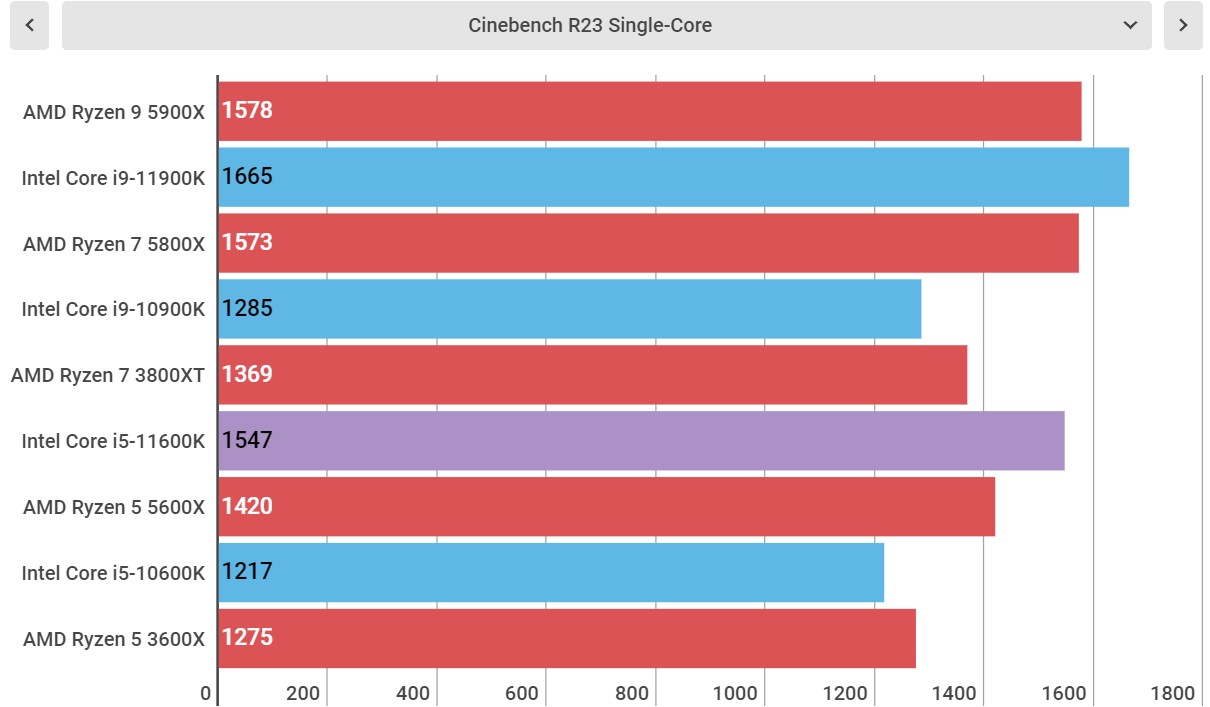
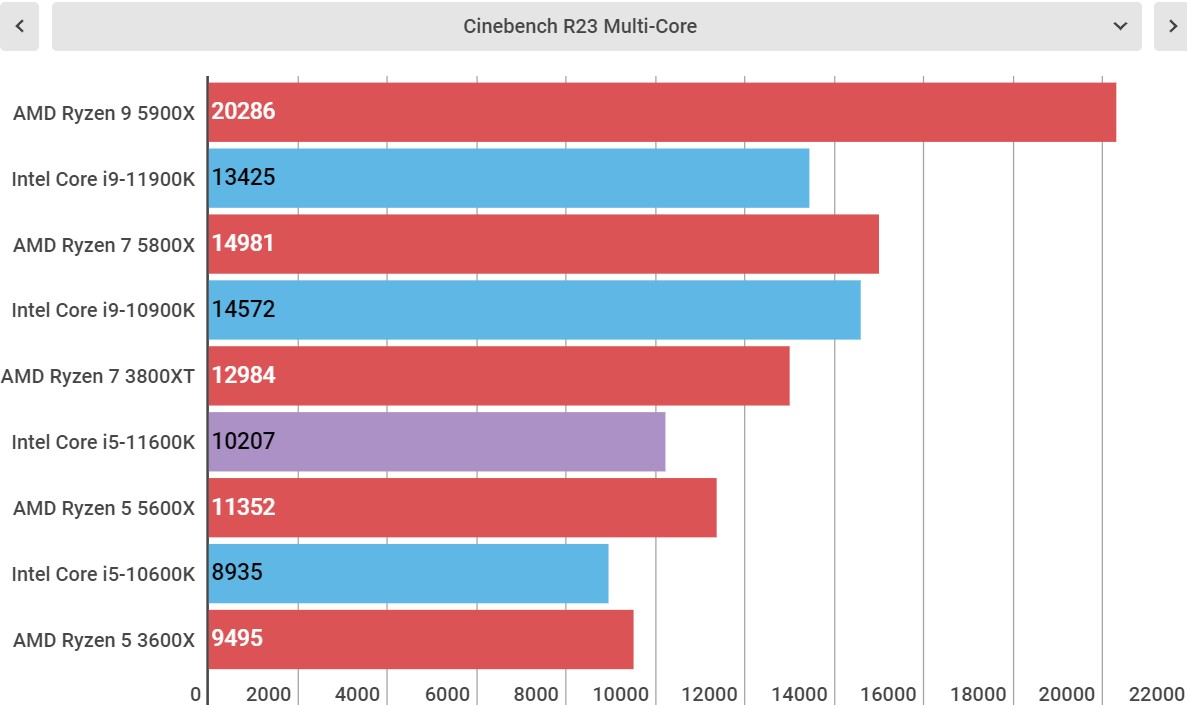
Benchmarks and performance
This is the system we used to test desktop CPU performance:
Intel:
CPU Cooler: Cooler Master Masterliquid 360P Silver Edition
Graphics card: Nvidia GeForce RTX 3090
RAM: 64GB Corsair Dominator Platinum @ 3,600MHz
Motherboard: Asus ROG Maximus XIII Hero
SSD: ADATA XPG SX8200 Pro @ 1TB
Power Supply: Phanteks RevoltX 1200
Case: Praxis Wetbench
AMD:
CPU Cooler: Cooler Master Masterliquid 360P Silver Edition Graphics card: Nvidia GeForce RTX 3090
RAM: 64GB Corsair Dominator Platinum @ 3,600MHz
Motherboard: AsRock X570 Taichi
SSD: ADATA XPG SX8200 Pro @ 1TB
Power Supply: Corsair AX1000
When we reviewed the Intel Core i9-11900K, we criticized it heavily because it fell behind not only its competition, but the previous-generation Intel Core i9-10900K. The Core i5-10600K does not have that problem.
Now, it does fall behind the AMD Ryzen 5 5600X in a few workloads, namely heavy-duty creative workloads like Blender and Adobe Premiere. That's pretty much to be expected, AMD has been extremely strong in these applications for a couple years now. But because the Intel Core i5-11600K is priced the way it is, gaming performance is much more important, as creative professionals are likely going to be jumping for something a bit more expensive anyways.
And the Intel Core i5-11600K doesn't exactly blow the Ryzen 5 5600X out of the water here, but it does trade blows quite effectively. Our CPU test suite includes three gaming workloads, 3DMark Time Spy, Metro Exodus at 1080p on low settings and Total War: Three Kingdoms at 1080p with low settings. Intel comes away with a win in both the 3DMark CPU score and in Metro Exodus. And even its loss in Total War: Three Kingdoms is just a 5% loss.
For a processor that's a whopping 30% cheaper than the Ryzen 5 5600X, you're really not missing out if your core focus is playing your favorite PC games. And even though the Core i5-11600K does fall behind a little bit in something like Premiere, there's still more than enough headroom here for doing some streaming through OBS – doubly so if you pair it with an Nvidia graphics card with the fantastic NVENC encoder.
What's more important, though, is how much of an improvement the Core i5-11600K brings over the Core i5-10600K. Again, this is mostly thanks to the way higher power consumption, but you're looking at a gigantic 24-44% jump in potential gaming performance.
It's unlikely, of course, that you're going to be playing anything at 1080p low settings with this graphics card, unless you're really after the high framerates in esports titles, but it's way less likely that this processor is going to bottleneck a high-end graphics card, which means you're going to be more likely to drive the 360Hz gaming monitors we're starting to see hit the market.
If all you're looking to do is build yourself a nice affordable gaming rig, and you don't think you're going to be going all-in on content creation, the Intel Core i5-11600K might be one of the best processors on the market right now. You do have to contend with the frankly out of control power consumption and temperatures, which will add to the cost of your build once you factor in cooling and power, but this is probably the Intel processor to buy.
Hopefully next generation Intel will release more than just a Core i5 processor that's worth buying, but until then, the Intel Core i5-11600K will be a fantastic chip for any PC gamer, aspiring or otherwise.
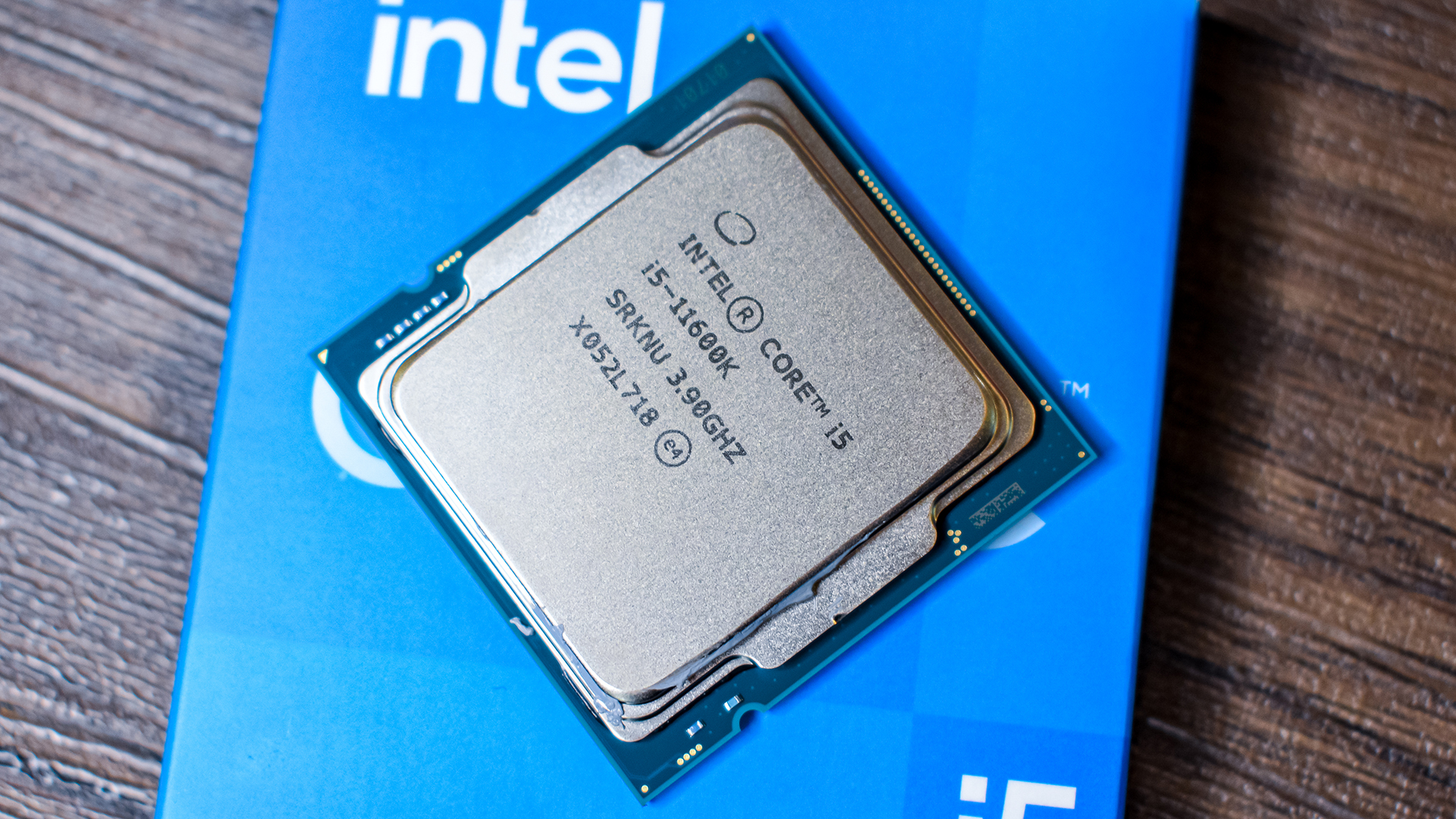
Buy it if...
You want to do some PC gaming
The Intel Core i5-11600K is one of the best processors out there for gaming, especially if you don't want to spend too much on your build.
You're on a budget
While big-name processors like the Intel Core i9-11900K and Ryzen 9 5900X are really cool and powerful, they're also very expensive. If your budget only allows for a few hundred bucks or quid for a CPU, the Core i5-11600K is a great choice.
You're going to go for a water cooler either way
Regardless of whether they're necessary, all-in-one liquid CPU coolers are absolutely everywhere these days. If you were planning on getting one of these coolers anyway, the Core i5-11600K will be great.
Don't buy it if...
You don't have the budget for a badass cooler
The Intel Core i5-11600K gets way hotter and consumes way more power than previous Core i5 processors, so if you weren't considering the cooling in your budget, you might want to think again.
You already have a recent processor
While theoretically, the Intel Core i5-10600K is a huge jump over past chips when it comes to gaming, you'll only really see that difference if you're trying to push really fast refresh rates. If you have anything newer than a 7th-generation processor, you're probably not going to see a noticeable jump in performance, unless you're a big esports player.
0 comments:
Post a Comment